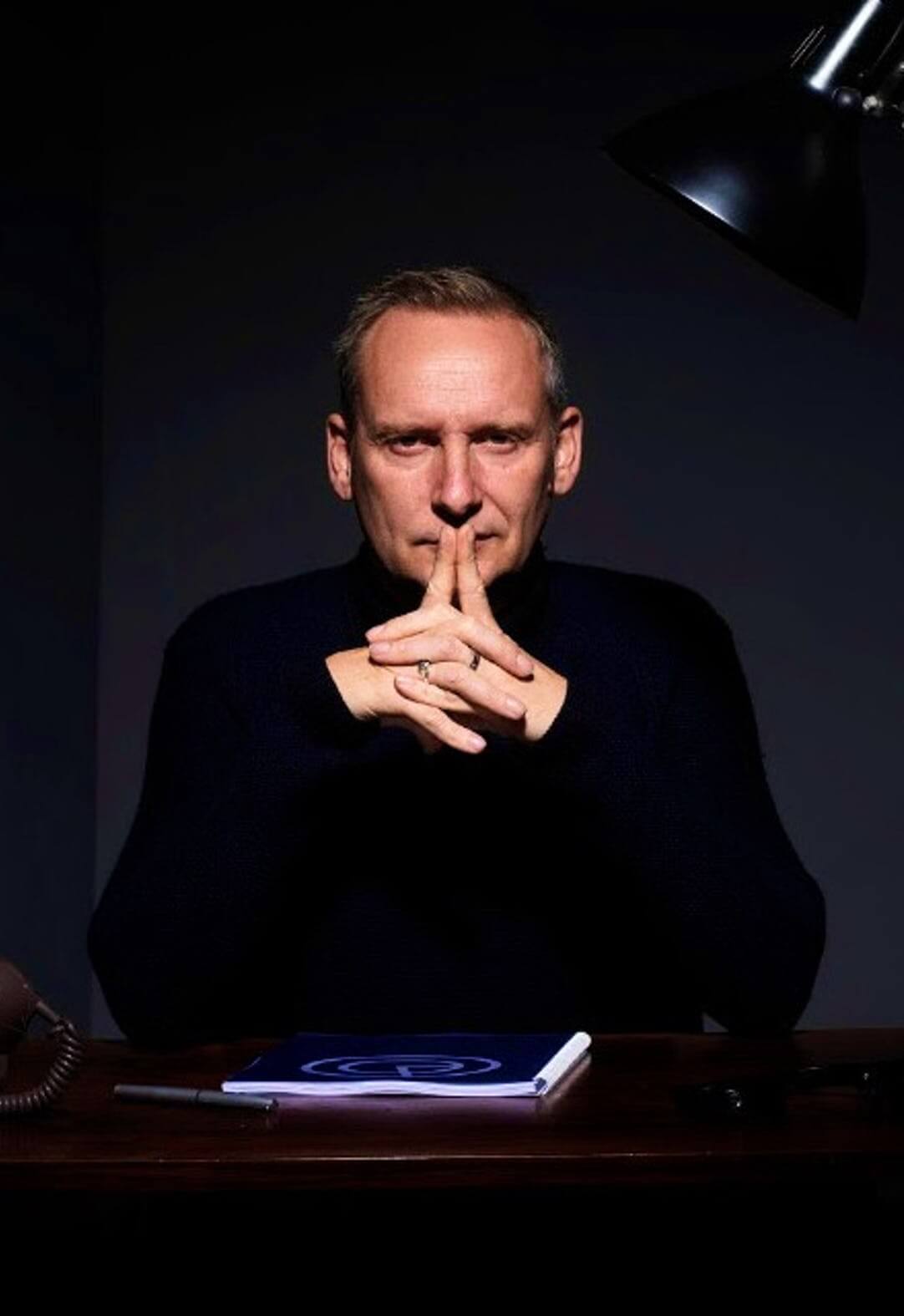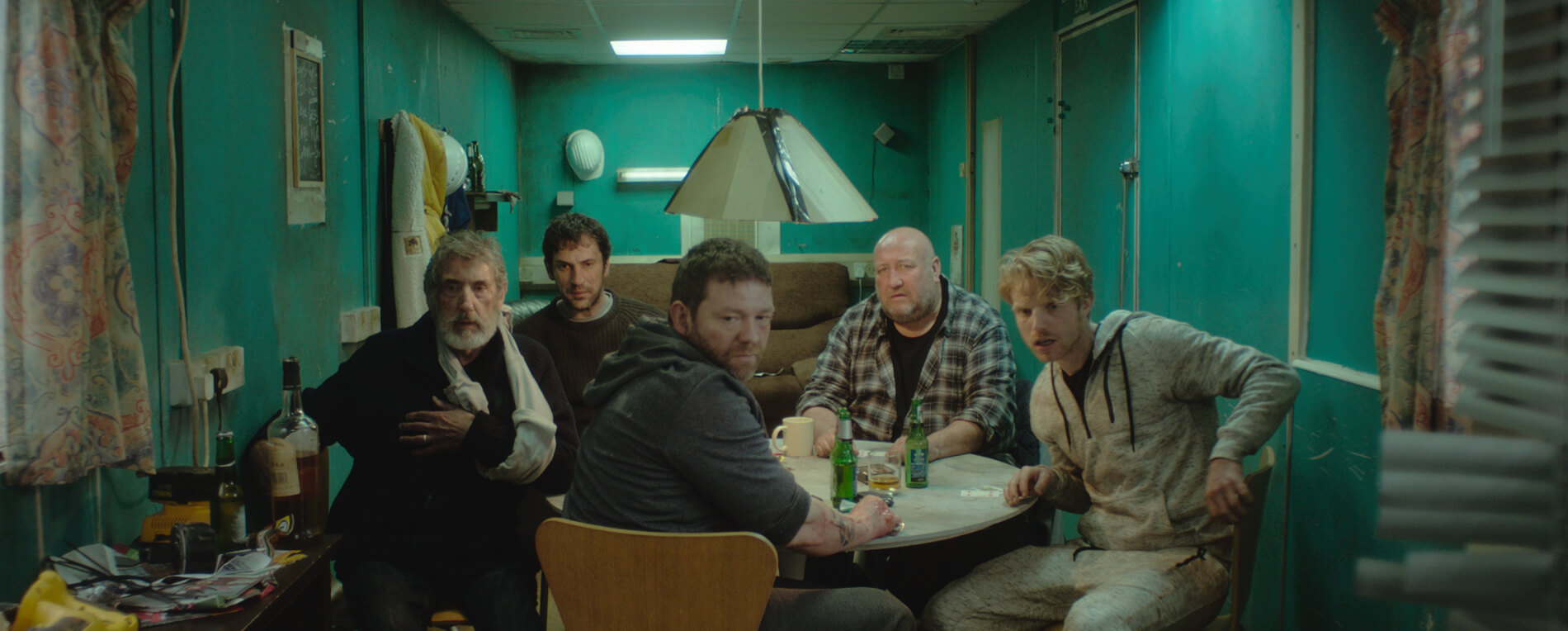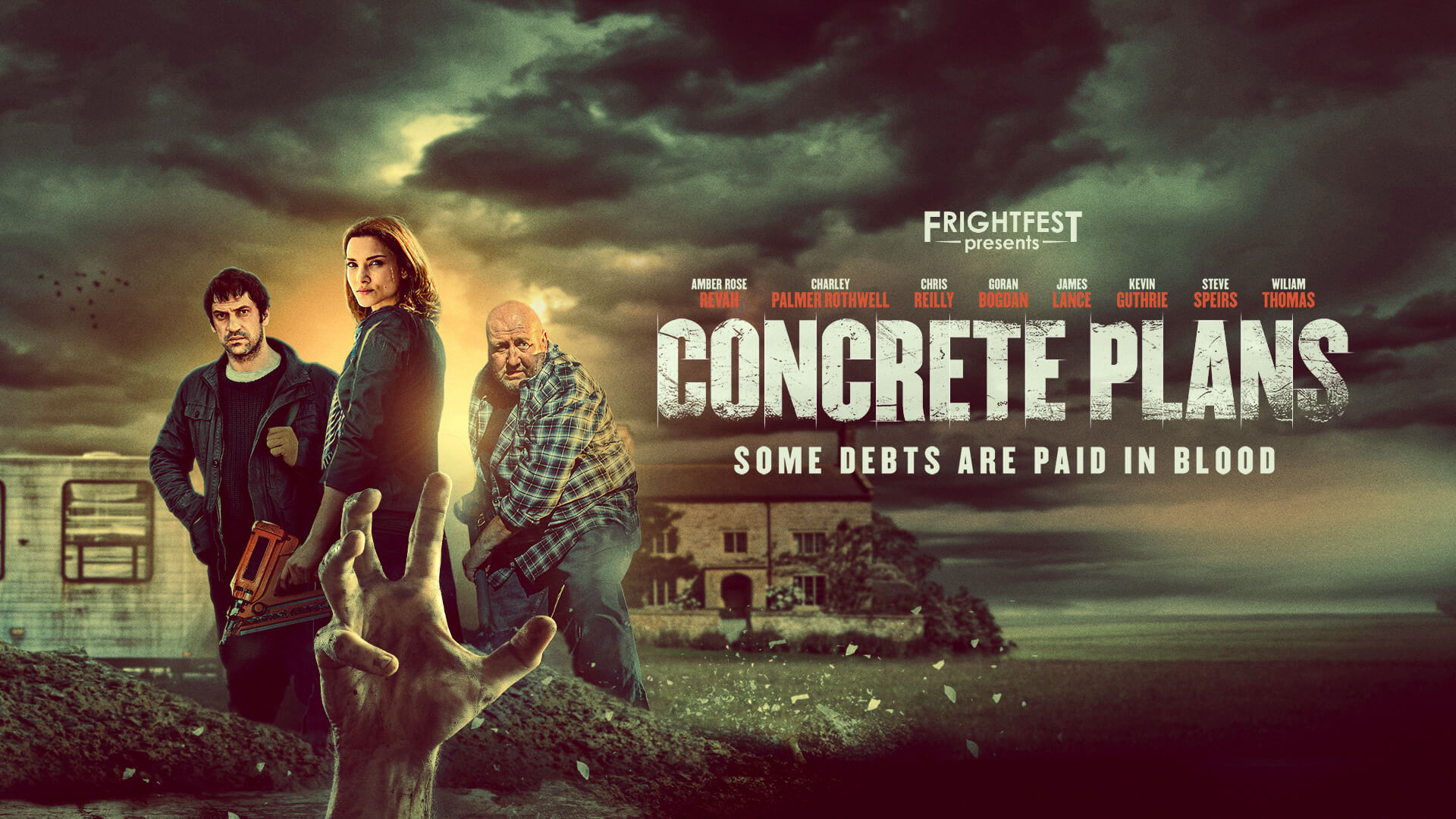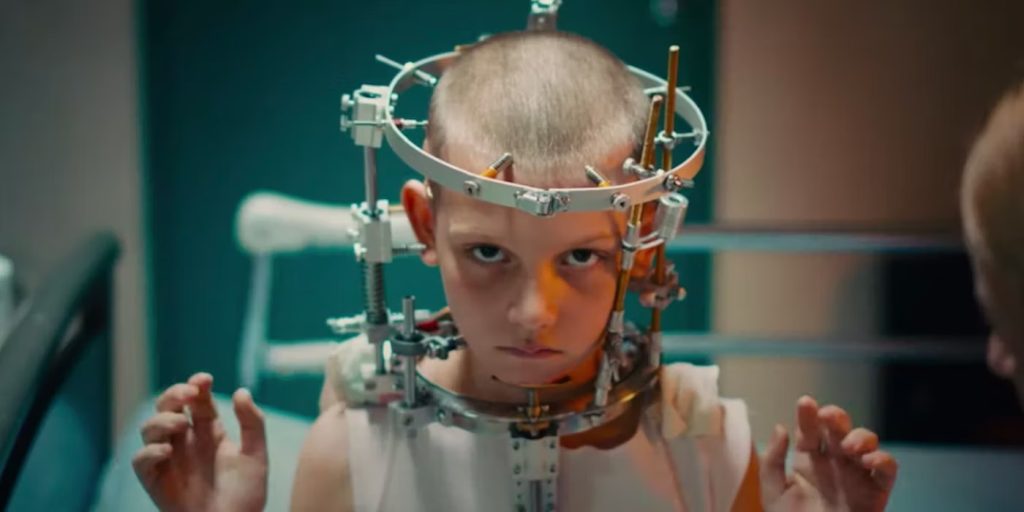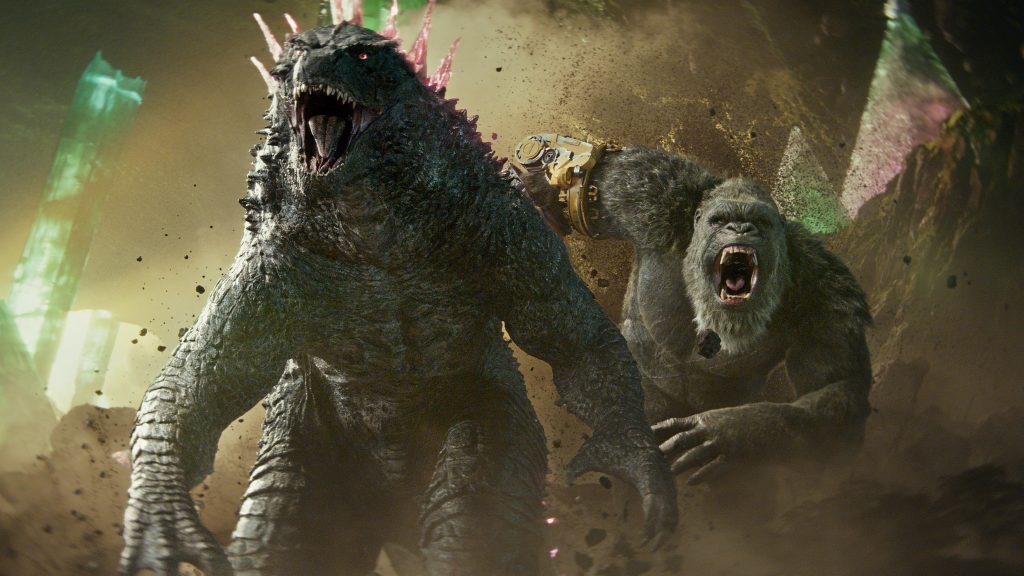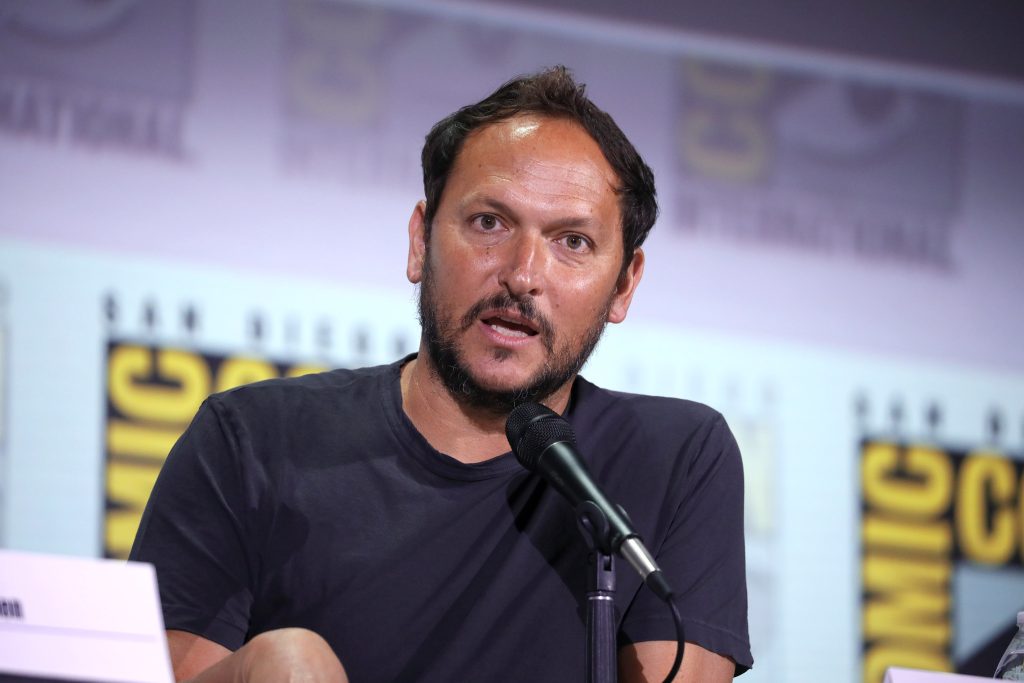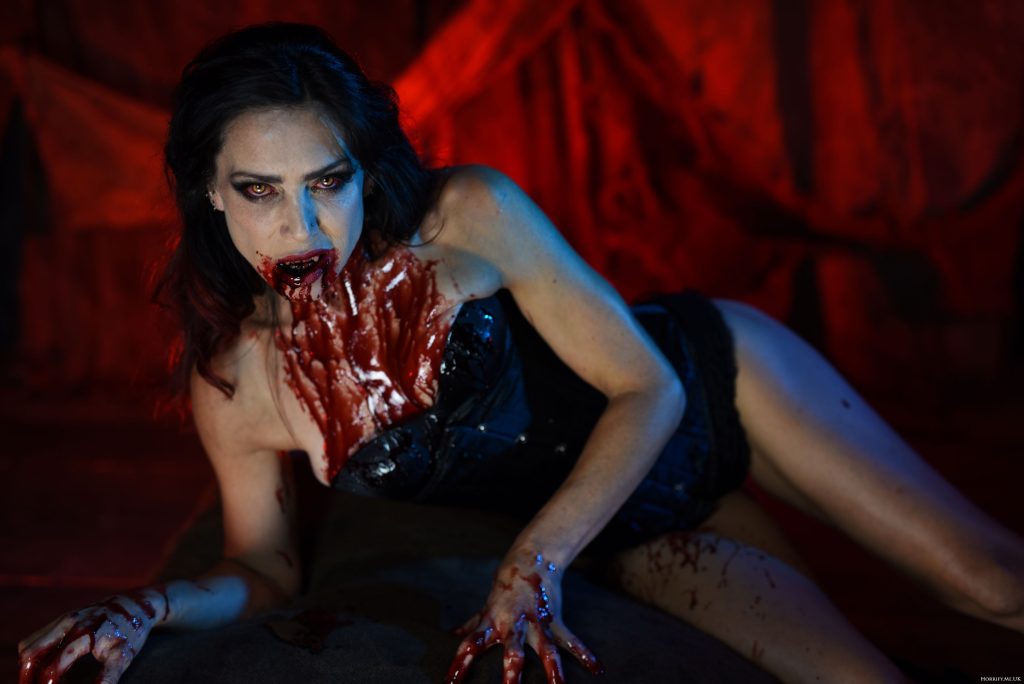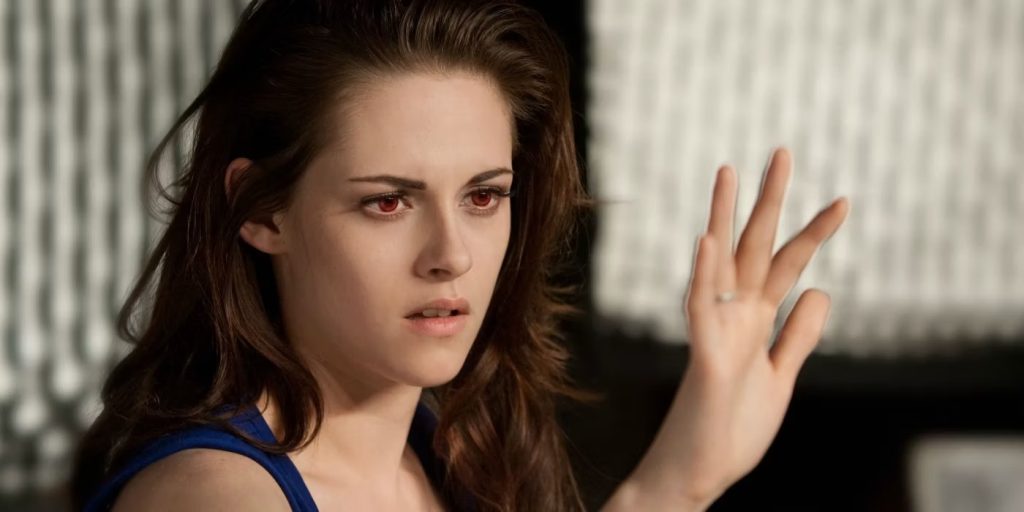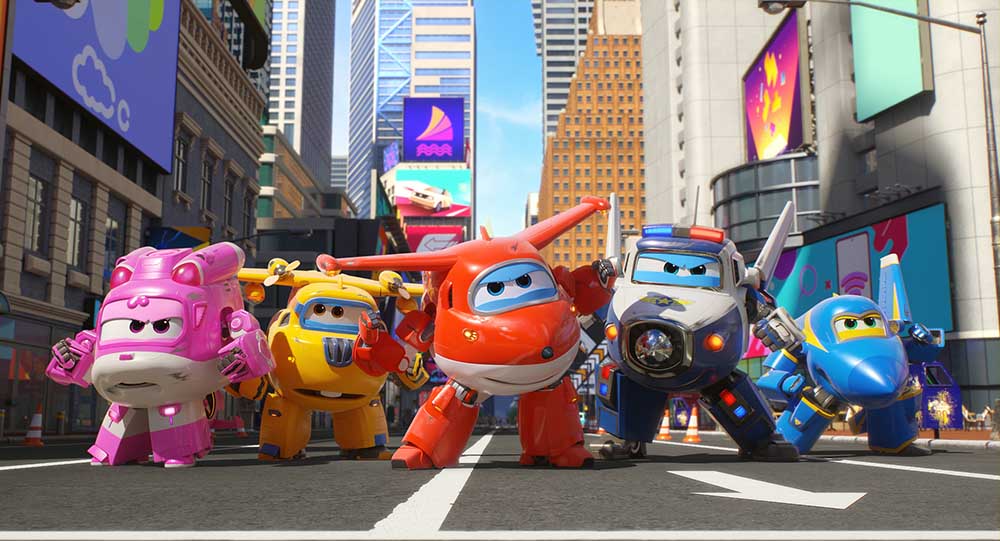From 1989-2004, musician Paul Hartnoll was one half of the legendary electronic music duo, Orbital, along with his brother, Phil. While the pair have reunited several times in the intervening years, since that time, Paul Hartnoll has released a pair of solo albums – The Ideal Condition and 8:58 – and has begun scoring various films, documentaries, shorts, and even the second season of Peaky Blinders. His latest work is the score for the Welsh crime thriller, Concrete Plans, directed by Will Jewell. STARBURST’s Nick Spacek spoke with Hartnoll about his scoring work and how Orbital’s music found its way into many, many different areas of entertainment.
STARBURST: We’re curious as to how you got in contact and came to work with Will Jewell on Concrete Plans because it is a fascinating movie.
Paul Hartnoll: It came about through a mutual friend of ours – a guy called Iestyn George who used to be a music journalist that works with the Welsh tourist board, I think. He was somehow involved with some of the Welsh people involved with the funding of the film. He lives in Brighton and he bumped into me and said, “Do you think you’d be interested in doing a score? A local Brighton guy’s working on a film and I think you’d be a great person to score it,” and I said, “Yeah, I would,” and we just went from there, really.
Will got in touch at one point. I think it was a good year or so after we got in touch, before the film even got made, but we just kept in touch. We’d go meet up for coffee and that kind of thing and discuss what was going on and just kept in touch. So often, with lower-budget films, so much of it’s spent trying to get the funding together and that kind of thing but I just hung in there, patiently, and waited for it to happen. Lo and behold, it did – which was great.
We always find it fascinating when composers come on before a film has even started lensing anything because it seems like it allows you to start a little more ephemerally in that you get to read the script early on?
Yeah, you get to think about it. It’s kind of there in your head so, when you do finally start, you hit the ground running because you’ve already got an idea. Sometimes, you might have built a few sort of themes or ideas in the background that you may or may not play to the director, but you can build it up like that.
I’m trying to think if I had started kind of collecting sounds and things like that with this one – just little bits and pieces that I thought, “Oh, if we get a moment that that’s like this that this kind of sound will work well,” and just kind of thinking it through a little bit.
How did it change once you saw how it looked and it came out like on-screen?
I don’t know if it did change that much because I knew Will was quite keen for some kind of guitar element, which I was really happy to do. I’m not much of a guitar player, but I do like guitar-led scores, which are quite unusual and quite different because, normally, it’s keyboard players writing scores.
For me, it was that I like a lot of folk music and that kind of thing and so I was thinking things like guitars and flute-like sounds to try to capture an element of the countryside – of the remoteness and that folksy feel that’s quite comforting around all the sort of bloodshed and horror that goes on – just to bed in with the landscape.
One of the interesting things about Concrete Plans is that it’s set in in the countryside and it has a working man, physical labour feel going on to it and yet, it gets progressively more violent, which seems to stand in stark contrast to the imagery that’s going on. Were you trying to not lean into the more physical aspects of it, and more the visual ones?
I can’t say I thought about it in that kind of way. I just watch it and I tend to react to scenes and films when I’m writing. It’s just a gut feeling: “Oh, this is the right thing. Oh, that’s the right thing.” It just sort of happens but I find also the idea is leapfrogged. Generally, I work from beginning to end so, by the time you’re halfway through, you’ve got a palette and a set of sounds that are working.
In this film, the whole atmosphere changes halfway through so then, you’ve got your palette, so you try to turn that on its head as you add new colours and sounds to it, to develop the horror aspect and the frightening, nasty stuff while still trying to keep and retain aspects of the earlier parts of your storytelling. You keep plucking bits out of it and use it. I don’t know if that answers your question, but that’s how it worked for me!
How do you approach a feature versus a short subject or television show?
That’s an interesting point, but I’m not sure because each job feels different. Having only ever done one six-part series – scoring Peaky Blinders – with six hours of scoring, that’s much more of a marathon and it feels like it’s a funny one because I would imagine a lot of the time you fall back on repeated themes and that kind of thing but we had quite a good visionary director on Peaky Blinders and he kept saying, “No, I’m bored of that. I don’t want to hear that again. I want to hear something new,” and he kept everybody on their toes developing themes and that kind of thing as it went along, which meant you could use repeated themes, but you had to kind of disguise it a bit from him and it was a bit of a game of cat-and-mouse.
With something like Concrete Plans, you’re just definitely seeing the whole thing in one go and it feels more akin to sort of scoring a long episode of a TV show. I mean, each TV show – even though you’ve got six episodes and you are thinking ahead, you have to really stay in the moment of the episode you’re on and then, hopefully, that will spin out into the next one.
With really short things – I just did a thing called One Last Dance and that’s essentially one, two pieces of music. It’s because it just feels like one theme is all it needs and I just extrapolated from it. It’s got a central kind of piece of music and then everything else is a ghost of that, spreading out in either direction, and that was for me was the concept: that’s the solid piece of music. Everything else needed to be a ghosty kind of thing because it’s a ghosty kind of film.
With Concrete Plans, it starts gentle and just gets brutal in the middle. How do you reconcile those two halves?
I know the film isn’t a folk horror film but, because of the countryside aspect, and because of my love of The Wicker Man and folk horror things, I tried to treat it with a little aspect of that, to give the landscape some air of mystery to it all. That also means when you get into the horror stuff, you can still conjure the landscape with your folk horror atmosphere and ideas. That’s how I thought of it. As long as it works, I don’t mind how it translates from the screen, but that’s the starting point in my head.
It’s quite interesting that you mentioned folk horror because the really notable films in that subgenre, like The Wicker Man or The Blood on Satan’s Claw have this element wherein the group drives every individual into this horrible thing that happens at the end of the film, and that’s very definitely Concrete Plans.
Well, yeah – they had to make a blood sacrifice in the name of money. I didn’t even think of that at the time.
Your work with Orbital has been featured in many, many films and television programs and, as Orbital, you and your brother have reworked two very notable themes. You reworked the theme for The Saint for that film in 1997 and you also reworked the theme for Doctor Who. What was it like, tackling these very well-known pieces of music: did working on those particular elements of score affect what you did when you started scoring things yourself?
I don’t think they did really affect how I score things because they’re themes. They’re very different. That Doctor Who was easy for me because it’s like, “Wouldn’t it be fun to do a sort of rave-y, dance music version of the Doctor Who theme tune?” and change its time signature, so that it’s absolutely a different thing but yet, really familiar and so, giving it a different swagger and making it very much almost like a happy hardcore version of the track? It was just great fun.
The Saint: that was a funny one because they said, “Oh, we don’t want the theme tune. We don’t like it – we don’t think it’s cool,” so that was the challenge. It was like, “Okay, I’ve got to make it cool,” so I thought, “Well, what’s cool from that era?” It’s people like Lalo Schiffrin, so we’ve got to lay low, shifting it up a bit. It’s not that far from the original, but then it’s like, “If you’re going to go for that, what else is it you could do?” and it was trying to channel that whole kind of drum and bass kind of thing that was going on at the time, as well – which I loved – so it’s got elements of those kind of things, while trying to keep true to a version of the same theme tune that, to this day I don’t know (and I don’t really care, actually) if it was the original version. It was a version that I liked that I had on a record that I’d had since I was a kid and so that was the one that I imitated and tried to do my own way.
To be fair, tackling those two tracks was so much fun because the hard work was done. Someone had already written the fantastic tunes so, all I had to do was produce it and re-purpose it for what people wanted. In terms of The Saint, it was to give a bunch of Hollywood people the feeling that it was cool again and for Doctor Who, it was to revive the Doctor Who theme tune, which was dead in the water at that time.
In the mid-’90s, everyone had forgotten Doctor Who. It finished and it was a thing of the past. No one knew it was coming back with a vengeance or anything like that. It was like, “I don’t want the Doctor Who theme tune to finish!” I want to play it – it’s trippy, it’s about space and time, and what a great way to end a rave. That was my reckoning for that, so that was good fun, really.
I ask every musician who has had their music featured in in television and in film what it’s like having hearing your music in a visual context, removed from how you originally put it together?
The track Halcyon + On + On has ended three different films, right, and it started another one. How about that? Do you know what I mean? You think it was this great ending piece and all of a sudden, someone goes and puts it at the start of a film and it works there, as well. For me, it’s a collaborative sort of thing and it’s really interesting to see what a director does with it when they decide, “I want this piece of music and I want it here in my film,” and you watch it and you go, “Wow! I wouldn’t have thought of that,” or you think, “Oh, that works. That’s really nice.”
It’s an interesting collaboration because it’s once-removed. You’re not actually involved in the collaborative process: someone else is doing it out of time. You’ve done your bit and then they’re taking it, running with it. That’s more like a relay race of collaboration, rather than actual working with someone. I always find it fascinating and interesting. Nine times out of ten, it works really well because, if a director has decided they want your piece of music rather than a piece of score, they’ve made their mind up. They’ve got a very strong idea and that’s that it’s going to work well.
Because Orbital and you, solo, have played so many raves and festivals and things like that, we have this idea that composing is similar to responding to the crowd, wherein you’re making music that responds to a thing, as opposed to working just in a vacuum.
Yeah, absolutely. When you work on a film it could be akin to that, but the intention is already set. The thing that is there has happened and it’s your job to then say what hasn’t been said by the actors or the visual content. For example, if it needs to be scary, it might not be scary on-screen and nobody might be saying anything so, it’s your job to surround the audience with some scary chords that conjure up that feeling or to make people cry. How many times have you cried in a film, where if you didn’t have the music, you wouldn’t have cried?
It’s the tipping point: the music just shoved you over the edge beyond where the actor and the director can. It’s just that little extra push and it’s a weird thing. Why should it even work? Why should music be playing in the background of some drama? It’s a really odd thing that comes from the silent movie era and it’s still there and we love it and it’s become a cultural composite that’s happened. I think it was Bernard Herrmann that said it’s the job of the composer to say what the actors can’t and that says it all, really.
Concrete Plans is out on digital release from Signature Entertainment from November 23rd. Read our review here.

